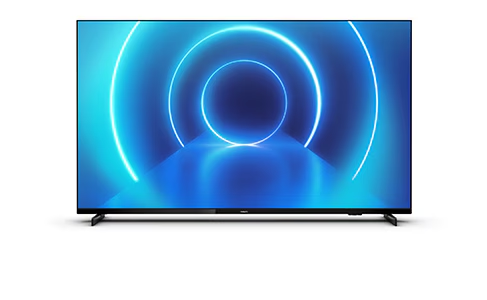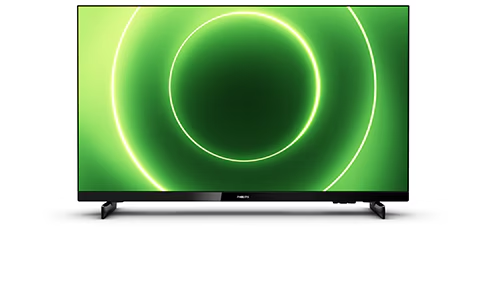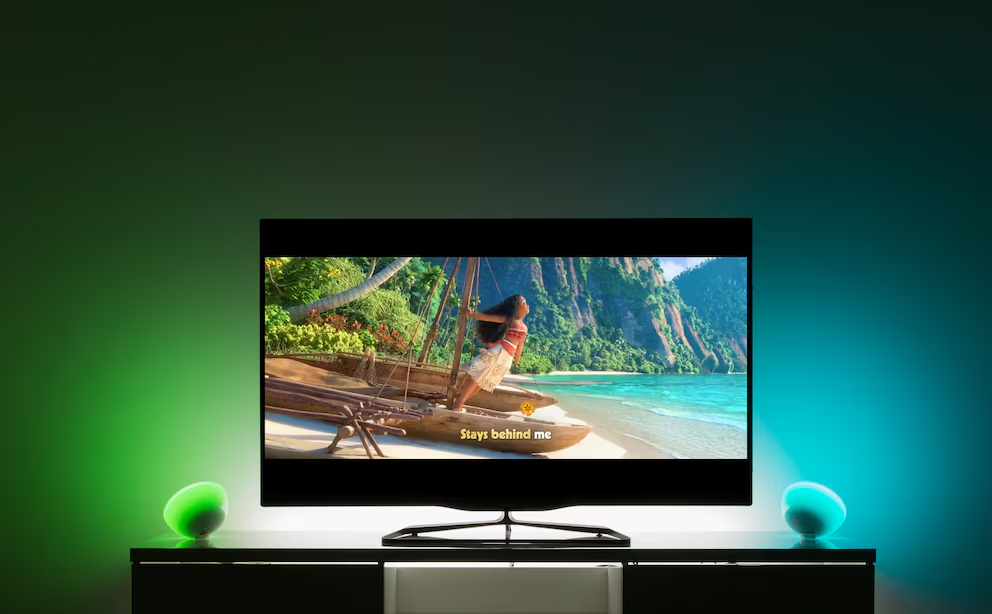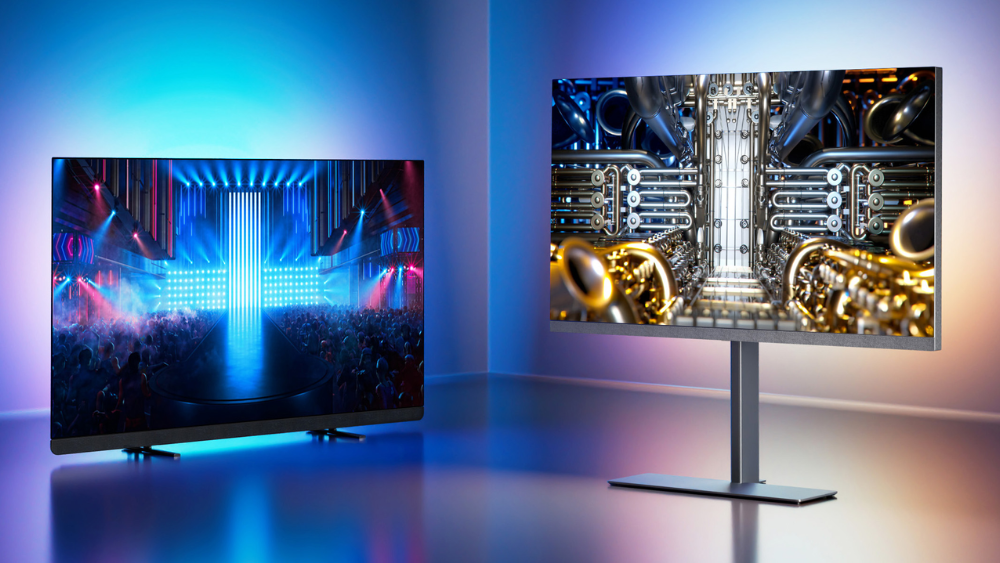Discover everything you need to know about Philips Smart TV: from what it is and how to use it, to costs, weight, maintenance, advantages, disadvantages, and features.
Philips Smart TV : Best Performance Top Quality
In today’s tech-savvy world, televisions have become more than just devices to watch shows and movies. They have transformed into multifunctional smart hubs that connect us to a myriad of content and interactive experiences. Enter the Philips Smart TV. Known for its blend of sleek design, superior picture quality, and user-friendly interface, the Philips Smart TV stands out as a top contender in the smart TV market. But what exactly is a Philips Smart TV, and how does it work? Let’s dive into this comprehensive guide that will unravel every detail you need to know about Philips Smart TVs.
What is a Philips Smart TV?
A Philips Smart TV is a cutting-edge television that integrates internet connectivity and interactive web features into the traditional TV experience. This allows users to stream content directly from the internet, access a variety of apps, browse the web, and even control other smart devices within their home. Philips, a renowned brand in the electronics industry, has leveraged its expertise to create smart TVs that offer superior picture quality, sound, and a user-friendly interface.
Key Features of Philips Smart TV:
- Ambilight Technology: Unique to Philips, Ambilight projects a soft light onto the surrounding walls, enhancing the viewing experience.
- 4K Ultra HD: Provides four times the resolution of standard Full HD, ensuring crystal-clear images.
- HDR: High Dynamic Range technology delivers greater detail and lifelike colors.
- Smart OS: Philips Smart TVs run on Android TV or their proprietary SAPHI operating system, both of which offer a seamless user interface.
- Voice Control: With built-in Google Assistant or Alexa, controlling your TV with your voice is effortless.
How is Philips Smart TV Used?
Using a Philips Smart TV is as intuitive as it gets. Once you’ve unboxed and set up your TV, connecting it to the internet is the first step. This can be done via Wi-Fi or an Ethernet cable for a more stable connection. Once connected, the world of smart TV functionality opens up.
Daily Uses:
- Streaming Content: Access popular streaming services like Netflix, Amazon Prime Video, Hulu, and more directly from your TV.
- Browsing the Web: Use the built-in web browser to surf the internet, check emails, or watch YouTube videos.
- Gaming: Download and play games directly on your TV or connect a gaming console for an enhanced gaming experience.
- Smart Home Integration: Control other smart devices in your home, like lights or thermostats, directly from your TV using voice commands.
Specialized Uses:
- Video Calls: With the addition of a compatible webcam, you can make video calls using apps like Skype or Zoom.
- Workouts: Stream fitness classes and follow along with workouts right in your living room.
- Educational Content: Access a range of educational apps for kids and adults alike.
Cost of Philips Smart TV
The cost of a Philips Smart TV can vary significantly based on factors such as size, model, and features. Generally, you can expect to spend anywhere from $300 for entry-level models to over $2000 for high-end models with the latest technology.
Factors Influencing Cost:
- Screen Size: Larger screens typically cost more.
- Resolution: 4K Ultra HD models are pricier than Full HD models.
- Smart Features: TVs with advanced features like Ambilight or higher-end sound systems come at a premium.
- Model Year: Newer models with the latest technology tend to be more expensive than older versions.
Weight of Philips Smart TV
The weight of a Philips Smart TV varies depending on the size and model. On average, a 55-inch Philips Smart TV weighs around 35-45 pounds, while larger models like a 65-inch can weigh upwards of 60 pounds. It’s important to consider the weight when planning for installation, especially if you plan to wall-mount your TV.
Maintenance Scenario
Maintaining a Philips Smart TV involves regular cleaning and occasional software updates. Here are some tips to keep your TV in top shape:
Cleaning:
- Screen: Use a soft, dry microfiber cloth to clean the screen. Avoid using harsh chemicals or abrasive materials.
- Body: Wipe down the body of the TV with a damp cloth. Make sure the TV is turned off and unplugged before cleaning.
Software Updates:
- Firmware Updates: Regularly check for and install firmware updates to ensure your TV runs smoothly and has the latest features.
- App Updates: Keep all installed apps updated to avoid any compatibility issues.
Troubleshooting Common Issues:
- Connectivity Problems: Ensure your TV is within range of your Wi-Fi router and that there are no obstructions. Restarting your router and TV can also help.
- Picture Quality: Adjust the picture settings according to your viewing environment. Most Philips Smart TVs come with preset modes like Cinema, Game, and Sports.
- Sound Issues: Check the audio settings and make sure the TV’s volume is not muted. External sound systems may require additional configuration.
Advantages of Philips Smart TV
Superior Picture Quality
Philips Smart TVs are known for their exceptional picture quality. With 4K Ultra HD and HDR technology, these TVs provide vivid colors, deep contrasts, and lifelike images.
User-Friendly Interface
The intuitive interface of Philips Smart TVs, especially those running on Android TV, makes navigating through apps and settings a breeze.
Innovative Features
Unique features like Ambilight set Philips Smart TVs apart from the competition, offering an immersive viewing experience.
Smart Home Integration
Seamless integration with other smart home devices allows users to control their entire home ecosystem from their TV.


Disadvantages of Philips Smart TV
Cost
High-end models can be quite expensive, which might be a deterrent for budget-conscious consumers.
Software Updates
Occasional software updates are necessary to keep the TV running smoothly, which might be a hassle for some users.
Limited App Selection
While Philips Smart TVs offer access to many popular apps, the selection might be more limited compared to other smart TV brands.

Features of Philips Smart TV
Ambilight Technology
Ambilight technology projects a soft light onto the walls around the TV, matching the colors on the screen and creating a more immersive viewing experience.
4K Ultra HD and HDR
With 4K Ultra HD resolution and HDR technology, Philips Smart TVs deliver stunning picture quality with enhanced clarity and vibrant colors.
Smart OS Options
Philips Smart TVs come with either Android TV or SAPHI operating systems, both of which offer a user-friendly interface and access to a wide range of apps.
Voice Control
Built-in Google Assistant or Alexa allows users to control their TV and other smart home devices with simple voice commands.
Connectivity
Multiple HDMI and USB ports, as well as Wi-Fi and Bluetooth capabilities, ensure that you can connect various devices to your TV.
Conclusion
The Philips Smart TV is a remarkable blend of technology and convenience, offering users a superior viewing experience with its high-quality picture, innovative features, and user-friendly interface. While the cost may be higher for some models, the benefits and advanced technology make it a worthwhile investment for those looking to upgrade their home entertainment system.
FAQs
What is a Philips Smart TV?
A Philips Smart TV is a television that integrates internet connectivity and interactive web features, allowing users to stream content, browse the web, and control smart home devices.
How is Philips Smart TV used?
Philips Smart TVs can be used for streaming content, browsing the web, gaming, making video calls, and integrating with other smart home devices.
How much does a Philips Smart TV cost?
The cost can range from $300 for entry-level models to over $2000 for high-end models with advanced features.
What is the weight of a Philips Smart TV?
The weight varies by model and size, with a 55-inch model weighing around 35-45 pounds and larger models weighing upwards of 60 pounds.
How do you maintain a Philips Smart TV?
Regularly clean the screen with a microfiber cloth, keep the body dust-free, and ensure the software and apps are up-to-date.
What are the advantages of a Philips Smart TV?
Superior picture quality, user-friendly interface, innovative features like Ambilight, and smart home integration.
What are the disadvantages of a Philips Smart TV?
Higher cost for premium models, occasional software updates, and a potentially limited app selection compared to other brands.
This comprehensive guide has covered everything you need to know about Philips Smart TVs. From understanding what they are and how they’re used, to their cost, weight, maintenance, advantages, disadvantages, and features, you’re now well-equipped to make an informed decision. Whether you’re a tech enthusiast or just looking for a quality TV for your home, Philips Smart TVs offer a top-tier viewing experience that is hard to beat.
By Comparenbuy

